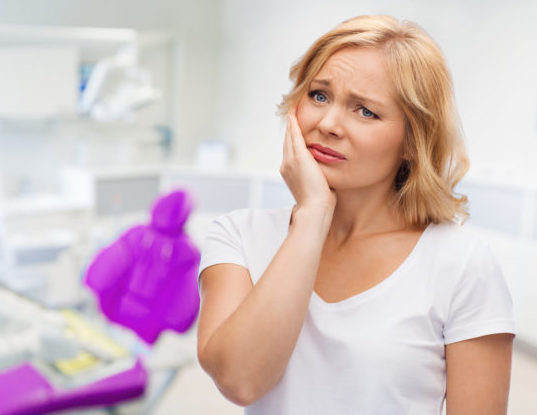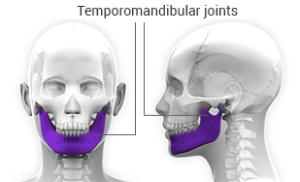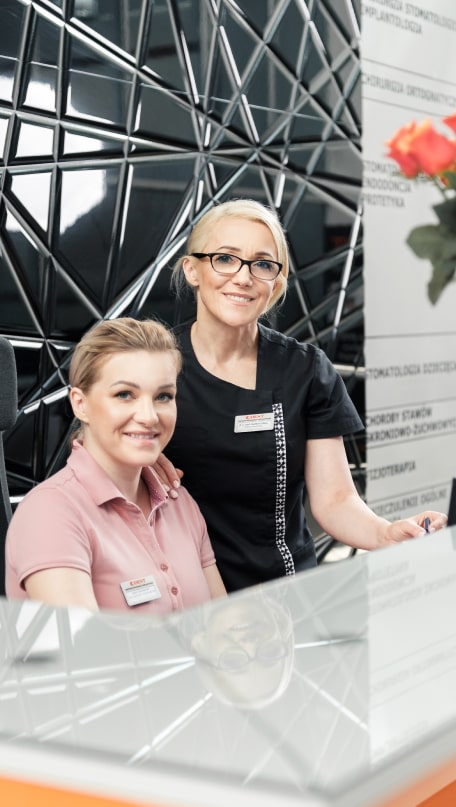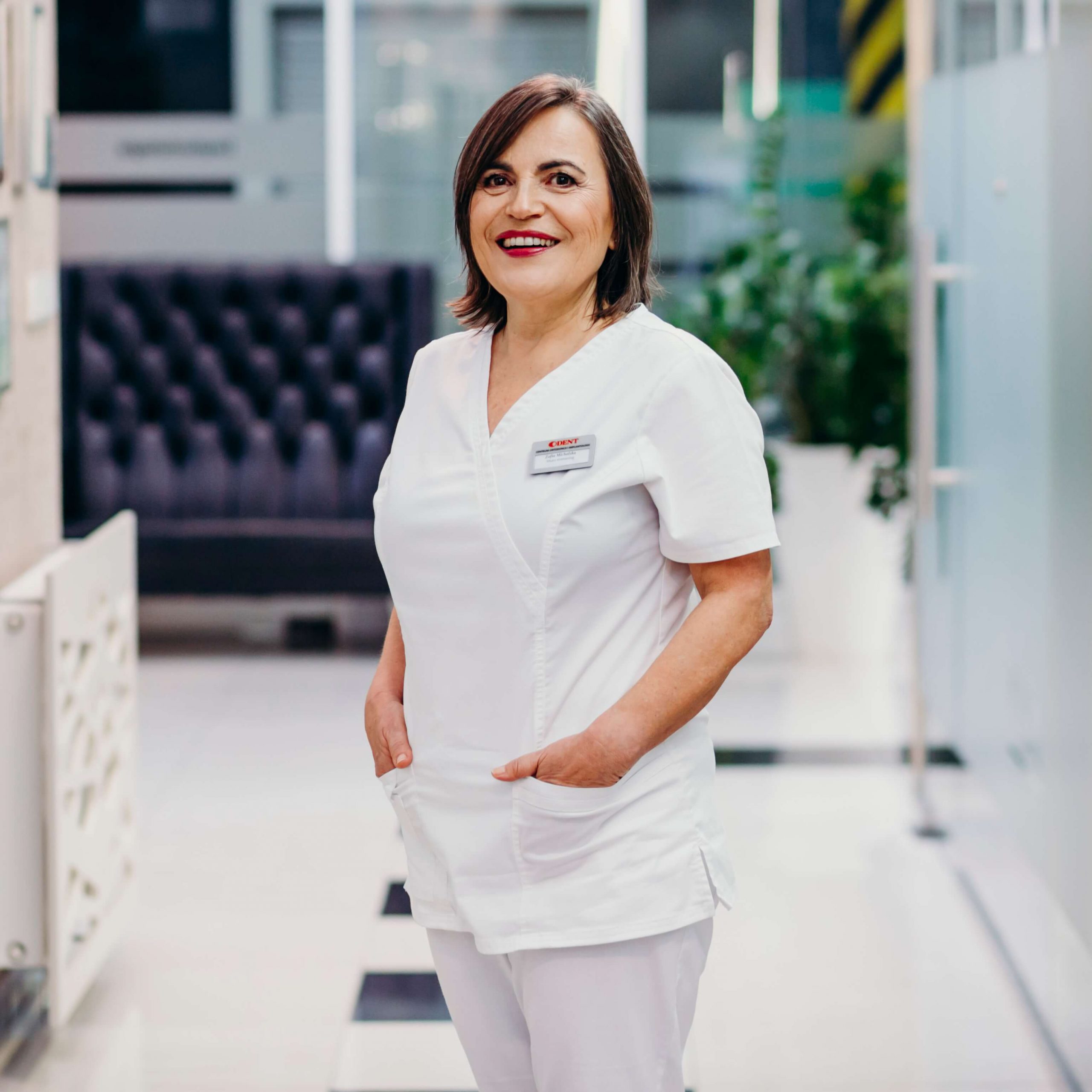Diagnostics of the temporomandibular joints
Comprehensive diagnostics provided at our Centre allows us to effectively

The temporomandibular joint connects the mandible to the temporal bone. There is an articular disc between the two bones, which perfectly fits them together.
The temporomandibular joint is one of the most complex joints in our body.
A number of muscles, ligaments, nerves and blood vessels are associated with the joint and affect our health. The proper functioning of the joint is the basis of the physiology of the masticatory system. We use the temporomandibular joints every day: during speech, singing, eating, chewing gum.
Causes and disorders of
temporomandibular

What are the temporomandibular disorders?
Dysfunction of the temporomandibular joint means incorrect functioning of the jaw joint, connecting the maxilla and the mandible. The joint allows the mandible to move upwards, downwards and from side to side. Every problem related to an incorrect operation of the jaw joint, such as pain, “cracking” when you open your mouth (yawn) or locking of your jaw, is a symptom of temporomandibular disorders.
Causes behind the temporomandibular disorders
- Malocclusion
- Missing teeth
- Muscle strain (teeth grinding and clenching – bruxism)
- Bad posture
- Post-traumatic conditions
- Stress

What are
the symptoms?

If you have headaches, feel pain in the area of your temples or jawbone, involuntarily clench or grind your teeth, it may mean that you suffer from temporomandibular disorders.
This is a serious problem and should not be taken lightly. Do not hesitate to visit our dental surgery in Warsaw for a consultation with joint examination. Our team is composed of highly qualified doctors specialising in diagnostics and therapy of the temporomandibular joints. We offer consultation, diagnostics and treatment, as well as post-treatment care – there is also a physiotherapist in our team specialising in rehabilitation of patients with temporomandibular diseases.
Symptoms of temporomandibular disorders:
- Pain and cracking in the joint
- Headache, neck pain, frequent migraines
- Earache, tinnitus
- Grinding and clenching of teeth (bruxism)
- Cracking in the joints when you open your mouth
- restrictions/blockages in opening the mouth
- Excessive tooth wear
- Toothache without evident cause
- Inability to open the mouth wide, e.g. when biting an apple
- Hypertrophy of the masseter and temporal muscle – the so-called square face
Treatment stages
temporomandibular joints:
During the first visit in the dental surgery, the doctor gathers information on your medical history and performs manual examination of the head and neck muscles, temporomandibular joints and joint capsules. He or she also assesses the function of the tongue and dentition, and checks if the upper and lower teeth come into contact correctly (occlusion). The doctor identifies the cause of the headache, face pain and backache, as well as diagnoses the problem behind cracking in the jaw joints.
A panoramic radiograph of the mandible is taken to examine and compare both joints.
After initial diagnostics, the doctor may order additional tests, such as head or spine MRI, laryngological examination or blood tests.
Based on the test results and the medical history, the doctor makes a thorough diagnosis and proposes the treatment for the temporomandibular joints, e.g. with an appliance relaxing the head and neck muscles worn at night (occlusal splint therapy/ dental guard) and rehabilitation of the jaw joints.
He or she refers you to a physiotherapist to reduce clenching of teeth and improve the muscle flexibility.
The patient is referred to other specialist dentists as the therapy of the temporomandibular joints is very often combined with orthodontic and prosthetic treatment (e.g. bite elevation). The dentists proposes self-treatment, i.e. learning how to do exercises at home.
Benefits of
the temporomandibular joint therapy:
Frequently asked questions
FAQ
1. What causes the temporomandibular disorders?
There are many factors responsible for the temporomandibular disorders::
- Stress
- grinding, clenching of teeth
- Bad posture
- Arthritis
- Parafunctions, e.g. nail and cuticle biting, biting of pencils, excessive chewing of gum
- Malocclusion
- Missing teeth
The disorders and habits listed above affect muscles, keeping them in constant contraction and triggering pathological changes in the structure of the temporomandibular joints. Such changes lead to migraines, headaches, fatigue of the facial muscles and other disorders, e.g. spine pain, pain of the hip joint, knee pain.
2. Does the clicking and cracking when I open my mouth mean that there is something wrong with my jaw joint?
Such disorders as clicking and cracking when you open your mouth mean that your jaw joint is malfunctioning and you need to see a specialist. The doctor will recommend wearing a dental guard and will refer you to a physiotherapist to relax the muscles of your temporomandibular joints.
3. Is chewing of gum bad for the jaw joint?
Excessive chewing of gum may lead to dysfunctions of the temporomandibular joints. If you suffer from frequent headaches, cracking when you open your mouth wide, pain when yawning, we recommend that you cut down on chewing of gum to 3-4 minutes several times a day, solely for the purpose of refreshing your breath and restoring the correct pH balance in your mouth
4. Is tooth grinding and clenching harmful?
Tooth grinding and clenching suggests bruxism, a nervous and muscle condition, manifested by clenching of the jaws and grinding of the teeth, which leads to changes in the temporomandibular joints. The therapy consists in crafting a dental guard worn by the patient on the teeth at night and as long as possible during the day. In such cases, the doctor also often recommends physiotherapy of the jaw joints. Untreated bruxism may cause numerous health problems, such as: headaches, pain of the spine, hearing or sight problems.
Our doctors

Once you have completed the form, we will respond within 60 minutes during clinic hours.
-
Opening hours
Mon-Fri: 8:00 - 21:00
Saturday: 8:00 - 15:00
-
st. Grzybowska 85
00-844 Warsaw

